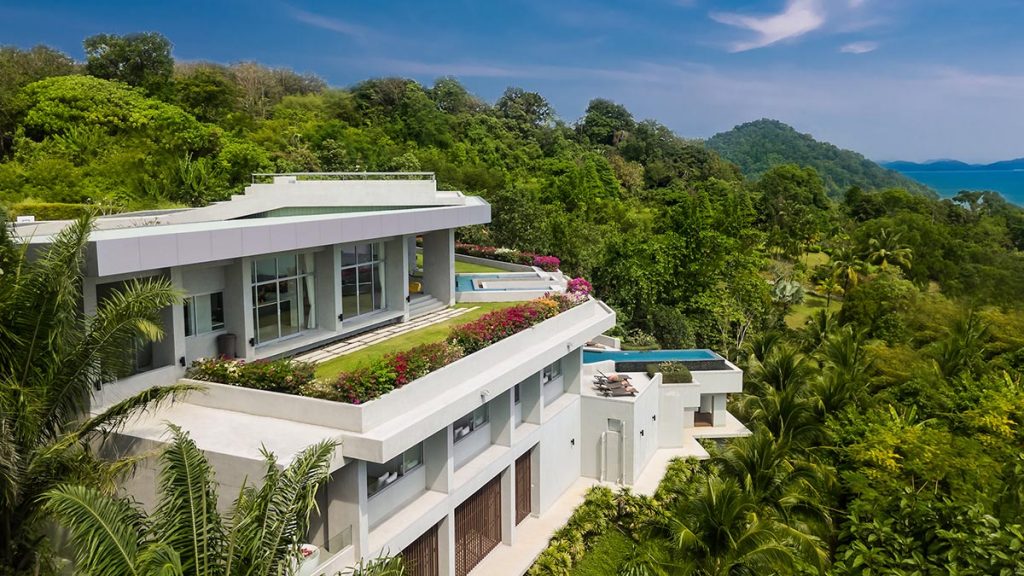Known as one of Asia’s best tropical paradises, Thailand attracts people from all over the globe because of its breathtaking beaches, vibrant heritage, and sumptuous gastronomy. Foreign visitors and expatriates often fall in love with the country’s majestic sceneries, low cost of living, and, of course, the friendly locals. Some enjoy their stay so much that they even consider purchasing a vacation house or retirement home in Thailand.
Related article: Best Locations for Luxury Retirement in Thailand
Thailand’s affordable properties make it even more enticing for foreigners and ex-pats who want to invest. Though foreigners are not allowed to own lands directly under their names, alternative ways exist for them to invest in property in this tropical haven. Here are several ways that foreigners can invest in real estate in Thailand.
1. Buying a condominium
Perhaps the easiest way for foreigners to own property in Thailand is to purchase a condominium unit. However, it is essential to note that foreigners can only comprise up to 49% of the total unit owners in the building or compound, following the 1979 Thai Condominium Act.
Condominiums are available in various locations in Thailand, so it will be easy to find one that fits specific needs and budgets.
2. Securing A Lease
Foreigners can enter a leasehold agreement to invest in a property. While the land cannot be owned directly by the foreigner, they can lease the property to create a building or structure. The lease is valid for 30 years and can be renewed twice, extending the leasehold period to 90 years maximum.
However, the lease renewal is not always enforceable by law. It can be rejected if the land owner or their heirs refuse to extend the lease. Therefore, upon entering a leasehold contract, it is crucial to put all essential details and agreements in writing to avoid problems and miscommunication.
3. Purchasing Through A Company
Foreigners with businesses operating in Thailand can become property owners by purchasing real estate under the company’s name. Setting up a Thai Limited Company allows foreigners to own up to 49% of company shares. Thai nationals must own the remaining 51% shares.
For the company to be recognized by the law, it should be a legitimate business that generates revenue and has proper Thai investors. Then, the shareholders can legally use the company to buy land or property. Hiring a Thai lawyer will be essential in this option.
4. Investing through the BOI
Foreigners wishing to invest in or promote a business in Thailand can be granted certain privileges and permissions by the Board of Investment (BOI). A foreign investor can be entitled to purchase residential lands that they can use for employee housing. The investment must be in assets or bonds deemed beneficial to the nation’s economy.
Prior approval from the Ministry of Interior may also be required before the release of grants to foreign investors. Heirs cannot inherit ownership of the property. The validity of the privilege is only limited to the investor’s lifetime.
5. Marrying A Thai National
Having a Thai spouse allows a foreigner to legally own real estate in Thailand. However, knowing that the non-Thai partner will be required to waive rights to claim the property is crucial. Essentially, the property would be placed under the name of the Thai spouse even if the foreigner purchased it. The Land Department will also require the married couple to sign a declaration indicating that the funds used to buy the property came from the Thai national.
Recent Developments
A resolution is in the works that would allow foreigners to own residential lands up to 1 rai, provided they can invest 40 million Baht in funds, securities, or properties over three years. By attracting foreign residents and ex-pats to invest in Thai real estate, the government aims to boost the economy by one trillion Baht while amplifying investments up to 800 billion Baht. The program also comes with tax benefits and a 10-year visa to attract skilled workers and retirees to settle in Thailand.
Thailand is gearing for a 3.5% growth in the economy this year and is expecting to reach pre-pandemic levels by 2023. Currently, the tropical nation is seeing an increase in its post-pandemic foreign tourist arrivals – a good sign of what’s to come and the immense potential of the proposed investment project.





